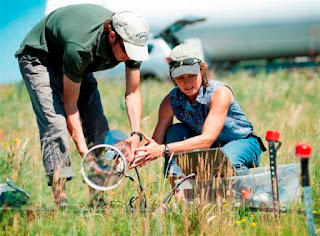The Botany Club recently held a plant sale in the Williams Conservatory. This is a traditional event for the club to generate support for its activities which include purchasing additional plants for the Conservatory to further diversify the collection for all to enjoy.
The Botany Club is free and open to anyone interested in plants and has funded a variety of field trips in the past to places such as the Denver Botanical Gardens, Celestial Seasonings, Fantasy Orchid Nurseries outside of Boulder, Bath Greenhouses in Ft. Collins, Cheyenne Botanical Gardens and Yellowstone National Park.
The Botany Club is a student organization and is dependent on student initiative to coordinate meetings and activities. It is a good way to interact with faculty, staff, students, and the community.
--- Contributed by BJ Mitchell & Bill Higgins



